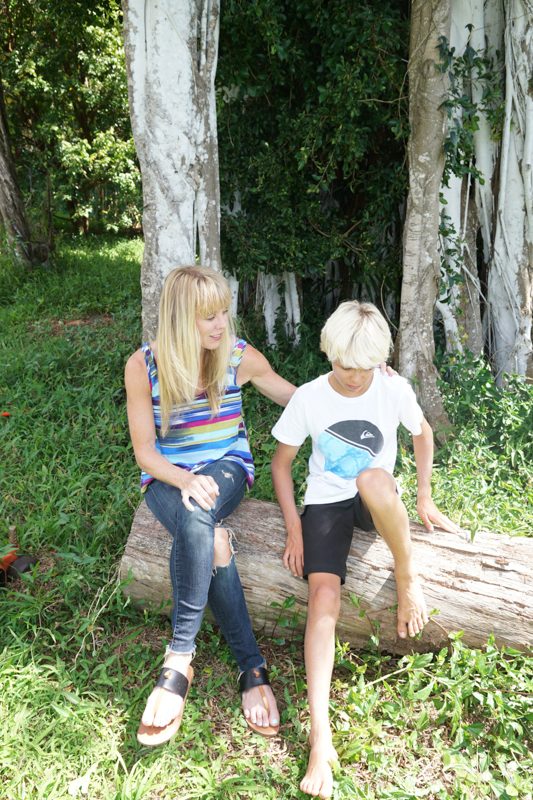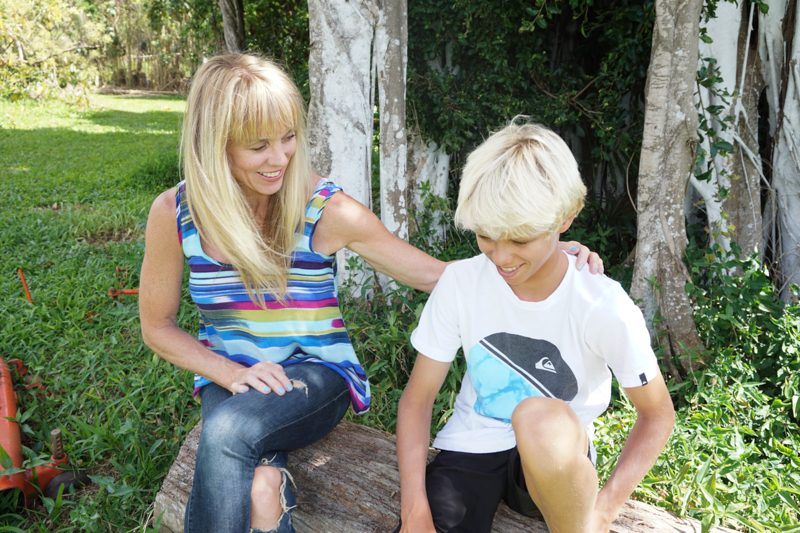Conversations with our kids, Part I: Identity and Image
Welcome to the first post in my new series: “Conversations to have with your teens/tweens now”
(click here for the introduction.)
Today I want to talk about the uber-important, all-consuming, (seemingly) life or death topic of Teens/Tweens and IMAGE.
This is an important topic because whether you talk about it or not, I guarantee it is on your kid’s mind.
The teenage years have always been a time of wrestling with issues of identity and self-image. The teen years are filled with so many changes–physical, and emotional, (not to mention hormonal) and with that the big questions of “Who am I?” and “How do I fit into this world.” Even back in the dark ages (like when I was a growing up) teenagers wrestled with their self-image. And now with the internet and social media–the pressures and stress have only grown. Kids no longer have to go to school or a social setting to face comparison, approval (or not,) and all of the stress that comes with image; one glance at a device can now flood our kids with all of those feelings, 24 hours a day. It’s a tough time to be a teenager.
If our kids have ever needed a safe place to work through their thoughts and feelings, it is now. That’s why I include this topic in my series. I think most parents are aware of the teenage identity crisis, but few actually talk about it.
Today I challenge you to be one of the few.
The first thing I want to do is clarify two words related to this subject: IDENTITY and IMAGE. These words are often used interchangeably, but I want to highlight the difference in their meaning. Sorry to get all nerdy and wordy here, but I think this is both interesting and helpful.
Here’s the basic (internet) definition of each word:
IMAGE: a representation of the external form of a person or thing. (<– key words, “representation” and “external”.)
So in most basic terms, IDENTITY is literally WHO YOU ARE.
And IMAGE is the externals. A representation. (or, your reputation.)
Both of these are important, but we should always begin with IDENTITY.
Your identity is the very core of your being. It is who you are. It is not what you do, how popular you are, how good your grades are, or any accomplishment you can claim. Your identity is unchanging. (a “fact.”)
If your tweens or teens do not yet have a strong sense of identity, I encourage you to begin there. Talk to them about the unchanging person that they are apart from all of their externals. Help them develop a healthy identity that does not change with the weather, or grades, likes, or follows. The more they focus on their inherent value as a person, the better their life will be.
{As for our family…} We have taught our boys from a young age that their identity is based on what God says about them. God created them and loves them unconditionally. (you can google search “identity in Christ” for more on this.) My kids have embraced this identity as they have spent time learning God’s Word and growing in faith. This does not eliminate the challenges of forming a healthy self image, though it certainly helps.
So what about image?
Ideally, a healthy sense of identity will lead to a healthy image. In other words: a secure person will have an external reputation which reflects a healthy internal identity. This is a great goal.
But we’re talking teens and tweens here, so let’s be realistic, right?
True. Even a kid with a healthy sense of identity is likely to struggle at some point with their image. When one of my sons who has always had a really secure identity was in his early teens, he admitted to me that he was wrestling with his image. As much as he didn’t want to, he found himself preoccupied with what people thought of him. I was so glad we could talk about it.
Because image matters. What others think about you is important. Your image will affect relationships, school work, sports, jobs and really, your entire future. Being intentional about the image you project to the world is actually very wise.
So once you’ve helped your kid lay a foundation for a healthy identity (knowing who they are), you can then help them think about the image they are showing the world.
The best way to do this is to talk about the things that authentically describe your son or daughter. This includes interests, passions, convictions. It includes their background, and the hopes and dreams they have for the future. You might ask questions like: “Who do you want to be when you finish middle school/high school?” “What kind of reputation do you hope to have?” If your child is older, this is a perfect time to dream about college, and articulate their goals and express the person they will be in that next season of life.
The idea here is that you help your child begin to think and then to connect what he or she is doing now with who they are becoming.
This is also a great time to chat about role models or older kids who your kids hope to be like. I was tickled last week when Luke came home from Jr. High Youth group and talked about a couple of boys who apparently really look up to Josiah (my 17 yr. old.) They stopped Luke and asked “What is Josiah doing–like, right now?” We laughed but I loved thinking that there are little boys literally wanting to model their life after Josiah.
I am beyond grateful for the incredible role models my boys have had in their life, and I love thinking that they are now becoming the same to younger kids.
If your child can’t think of specific role models, this is a great time to help them find some. You can direct them to books or stories online about great role models.
Helping your child develop a vision for who they want to become is a great help. They might have ideas in their head, but learning to articulate these things actually gives them tools to work with. A more defined sense of who they want to be can shape all of their future choices and priorities.
Because without a well-defined sense of who they want to be, it is easy for kids to simply drift with the tides of culture…Without realizing it, they can find themselves projecting images that are not at all who they truly want to be; they are just following the trends or getting sucked into what other kids are doing.
This also brings up the importance of talking about social media and technology and how it affects your kid’s image. Though there is no easy answer on this one, I urge parents to have the conversations about it. And often. I have written a couple posts that touch on this topic (this post is specifically about the internet and social media.) I also shared a post about a great book: Liked: Whose Approval Are You Living For? which is written for girls but has principles applicable to both boys and girls. Just be sure to have the conversations.
Perhaps most important is that our teens and tweens are aware of how their every day choices, behaviors and attitudes (not to mention instagram posts, snapchats and etc.) portray images to the world. How they dress or take care of themselves, and the music they listen to are all a part of this, and being unique is not bad (it is actually awesome!) but what is the message they are trying to give by all of these things? When they step back and see these things as part of a bigger picture, it can help them make better decisions. With a little coaching and mentoring from an involved parent, your child can make decisions, choose friends, use social media, and prioritize their time based on an intentional and healthy sense of self.
There is not one right way to have conversations with your kids about these things. You just have to do it. You might find that taking a walk (side by side rather than eye to eye) makes your teen or tween more comfortable. Sometimes car rides are a great time to talk. (captive audience; no escape! :)) The important thing is that you bring up the topic, then be a good listener. Try not to jump in to correct or criticize, but take this time to learn about your kid. You’ll have more chances to talk later, so consider this as an opening conversation.
I hope you’ll find time to talk to your kids soon. Make sure to cover Identity, and image. And make sure to tell them at least one story about the awkward, insecure times you went through growing up. They’ll love it.
NEW: Youtube video! Gather your kids around (or not) and hop over to my YOUTUBE channel to see a short video my 15 year-old son Jonah and I did together on this topic! I am hoping to do a video with one of my kids for each of the conversations I write about, and I hope you enjoy it. It’s super casual, but we had fun doing it. For future segments I may do some role playing or sample conversations (let me know what you would like to see!) Click HERE to see the new video. AND I hope you’ll subscribe to my YouTube channel to receive an email each time I publish a new video. (Which so far has not been very often. ;))
And when you’re done, would you be so kind to hop back on and tell me how your conversations go!? You are also welcome to leave questions or thoughts on this topic or on future topics for this series!
With Aloha — Until next time,
Monica
A book I HIGHLY RECOMMEND for our kids on the subject of identity:
The Search for Significance Student Edition
(I am an Amazon affiliate so if you click through and purchase books that I link to, a small percentage of the purchase price goes to support this blog. Thank you!)




I loved this post and have been looking and praying for just this thing… intentional significant conversations to have with my tween boy. I had a few conversations in mind already but this was so helpful and a big motivation to get started! So, I had the first conversation today about identity and image on the drive into school. Coming from one “extreme” introvert directed at another “extreme” introvert, (my son), it was awkward at first but so worth it. Because if I don’t have these conversations with him, who will? Where will he get this information if not from me and my husband? A sobering thought! So glad I went ahead and just did it, awkwardness and all. He didn’t say a word, (because introverts process before they talk) but I know (hope) he’s thinking about it. 🙂 I’m looking forward to your next topic. Thanks for all the thought and heart you put into your posts.
Laurie–Your comment truly makes my day. SO well done!!! I’m very proud of you–especially under the circumstances (double introvert situation :)) I really encourage you to follow up on this same topic…over time, yes, but also in the more near future. Perhaps ask him if that little chat made sense to him, and if it is something he had any thoughts on. Just keeping it kind of “in the air” makes it more comfortable than bringing up all over again later on. Yes, more conversations coming in the next weeks for sure. 🙂 Bless you!
I love this topic! I wish I had known this when I was 15, but unfortunately I turned to eating disorders to try to find my identity. The fear that my younger sisters would follow in my footsteps was a huge catalyst for me to get better, and now I am fascinated with the topic of identity.
I appreciate that you say “image matters.” Many people want to say that we shouldn’t care about image, because it’s only about what’s in the heart, etc. While “judging a book” solely by it’s cover is not good, it’s important also acknowledge, especially in our age of Instagram and social media, that image matters. Hopefully a person’s image will be supported by a a healthy identity grounded in Christ!
This is powerful, and I want every young person (and every person at every age!) to know their identity. About a month ago I wrote some articles on ways we can have healthy identity based on what I have learned and from classes I took with a Christian ministry. I’m so glad more people are talking about this.
Thank you for your powerful words of truth!
~ Rachel H.
Thank you Rachel! Love your words and totally agree. Sorry for what you’ve been through but it sounds to me like you’ve learned and grown through it all, and are now a blessing to others–awesome! I stopped by your site as well and it is lovely. Well done!! You must be a busy young lady! Keep up the great work and thank you for taking the time to comment. Much aloha to you–
I really love the topics you post on…this one is great. I just don’t know where to start with these conversations without being awkward or forced. I have 15, 13 and 12 yo boys. We have good relationships, but not on super deep levels until something goes wrong! Any ideas?
Thank you for commenting, and that is a great question! I always think the best approach is to be really honest and humble as we open up deeper conversations with our kids. Just telling them straight out, “Hey, I’d really love to have some honest conversations about things, and there are things we’ve never talked about before that I’d like to be able to talk about.” Our kids are usually not only open to that, but relieved/excited that their parents want to talk. Yes they might show some attitude at first, but I am convinced that deep down almost always they will be happy to know that you want to talk! I encourage you to just invite them on a walk, or to sit down over a snack/meal and go for it. It may be awkward at first but not for long. 🙂 I am hoping to share some YouTube videos with my sons helping me talk about some of these topics, so inviting your sons to watch with you might be a great way to open up the conversation! (You will see the Youtube icon/link on my right side bar near the top–click there to subscribe and soon you’ll get an email with the first youtube in the series.) Much aloha and let me know how your conversations go! 🙂
This is great. I love this topic.
Super great post! Including the dictionary definitions with your emphases really helpful.
thank you Amy! So glad to hear…much love to you —
Love this post so much, going to apply it with my family. Shared the post with friends! Thank you
Oh thank you so much. I’m so glad. Let me know how it goes! ;). Aloha-